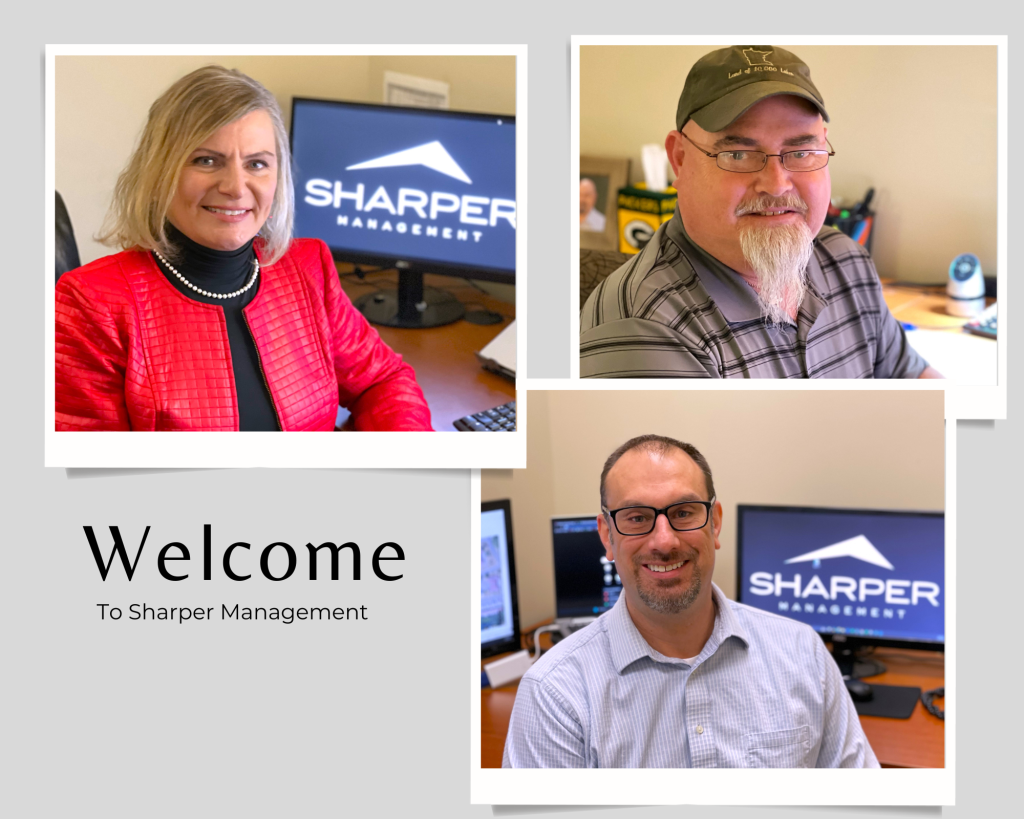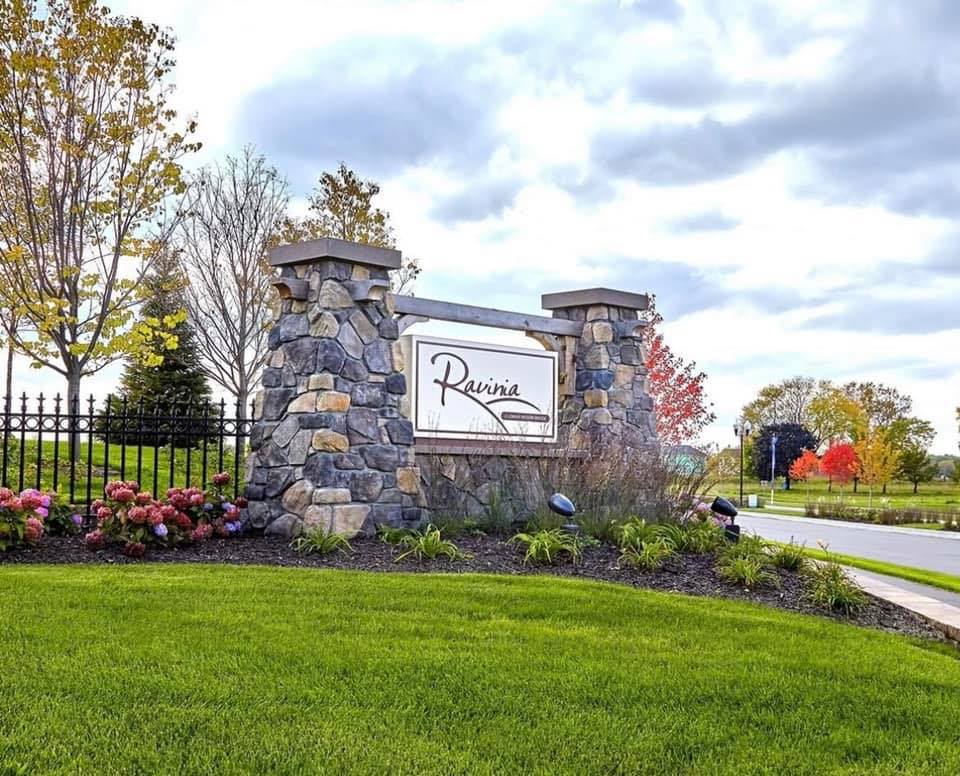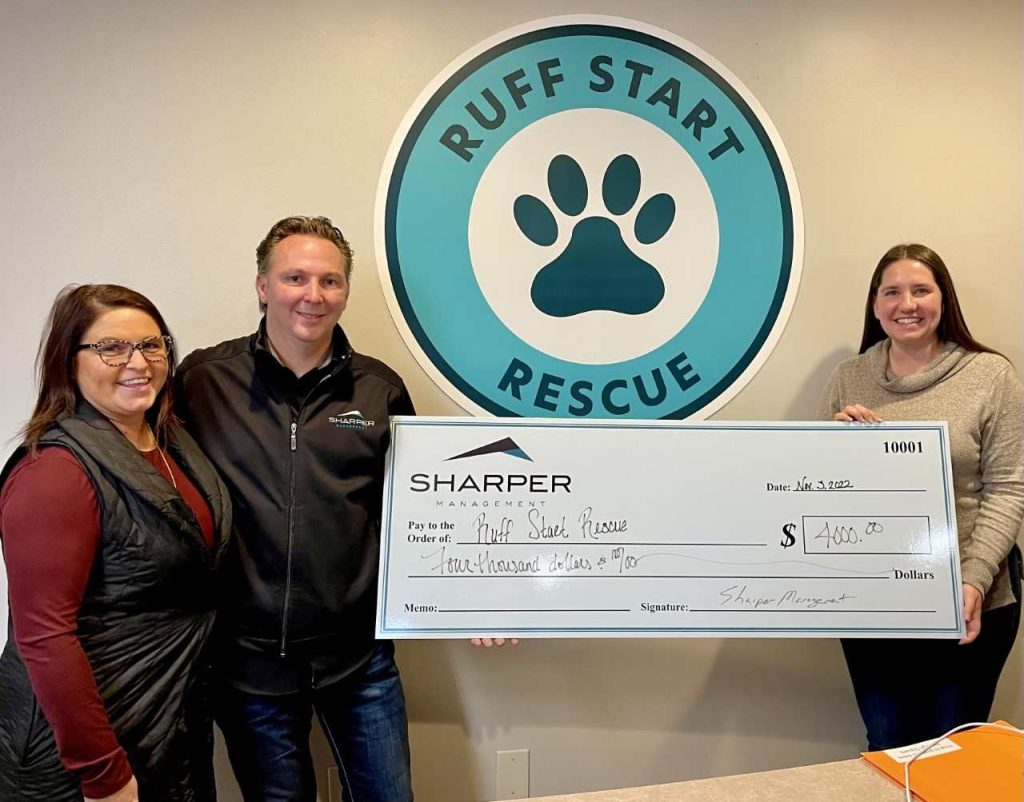Legislative Changes Affecting HOAs

The 2023 legislative session in Minnesota was active, with several significant bills that will impact community associations in the state. Below is an abbreviating listing of those topics. As the laws are further defined and incorporated into daily living in HOAs, we will continue diving deeper into these topics in future newsletters and publications. Marijuana/Cannabis A controversial topic, to be sure, that has been swirling around Minnesota for the past few years became a new law – Minn. Stat. #342. As a part of the comprehensive language passed, specific points related to associations and multi-resident/unit dwellings. We have to look at it in two ways. One issue is smoking, and the second is growing. Associations will have to navigate both problems. What it Says – generally, smoking or vaping in multi-resident/unit housing is unlawful and a nuisance under the statute. Growing is allowed with some limitations (maximum of eight plants). When it comes to growing, it does get a little more complicated. The new law allows people to grow up to eight cannabis plants, with no more than four being mature; flowering plants may be grown at a single residence. Must be the primary residence of a person 21 or older. If outside, it must be (1) enclosed; (2) locked; and (3) not visible to the public. The current law does not reference multi-family/unit developments (HOAs). Whom it Affects – all HOAs What it Means – Vaporizing or smoking cannabis flowers, cannabis products, artificially derived cannabinoids, or hemp-derived consumer products is prohibited in multi-family housing buildings, including balconies and patios. By existing state statute, boards also can govern common areas, including prohibiting smoking or vaping of cannabis products if they so choose. When it comes to growing, the association still controls common areas and can prohibit growing in limited common and common areas. However, they cannot regulate or disallow growing inside of the unit/home. The association’s Declarations would have to be amended to specifically disallow it. That said, the association does have the ability to manage and respond to nuisance issues. Both state statutes and Declarations typically say something to the effect of: Quiet Enjoyment; Interference Prohibited. All Owners and Occupants and their guests shall have a right to peaceful enjoyment in their respective Units. They shall use the Property in such a manner as will not cause a nuisance nor unduly restrict, interfere with, or impede the use of the Property by other Owners and Occupants and their guests. Should the growing of cannabis create issues, such as smell, and other owners complain, the association does have the right to ask an owner to cease the activity that made said nuisance. This issue could become challenging for an association to navigate, and it should seek legal counsel. When it Goes into Effect – July 1, 2023 Summary: our friends at the Smith, Jadin, and Johnson law firm recently spoke to Sharper Manager at length on this issue. An overview of their recommendations is as follows: Send an update to Owners regarding the marijuana bill explaining that as multifamily housing, smoking and vaping are prohibited. Take any complaints seriously and send violations consistent with Rule enforcement procedures. Keep a good paper trail. For complaints lodged, Board will need to know (1) when the alleged violation occurred and (2) who was the violator. If an Owner complains that they “smell” smoke, they can’t send a violation to every Owner. However, a general “reminder” email blast may help paper the file in case of a nuisance lawsuit. If a lawsuit for nuisance arises – 1. If procedures are followed (sent violation), tell Owner you have enforced and that they must drop the case or else the HOA will defend itself and assess fees • 2. If procedures are not followed, settle Solar Panels Like satellite dishes 20 years ago, associations must navigate homeowners wishing to install solar panels on rooflines. This has been a discussion amongst legislative bodies for the past few years. This year it finally got traction, and Minn. Stat. # 500.216 was passed. The bottom line, the new law limits some associations from prohibiting solar panels on rooflines. What it Says – “Notwithstanding any … homeowners association document, … a private entity must not prohibit or refuse to permit the owner of a single-family dwelling to install, maintain, or use a roof-mounted solar energy system.” Whom it Affects – Single family HOAs and any HOAs where the Owner is responsible for maintaining and insuring the dwelling (roofs, siding). Note that this bill does NOT apply to HOAs with shared roofs (such as a standard townhome). What it Means – Single-family HOAs may want to create a policy that could set parameters, requirements, and approval processes around solar panels. Examples include: Require only licensed contractors; prohibit materials extending beyond rooflines; require Owners to indemnify the HOA for any damages; require Owners remove the system if necessary to repair or replace something the HOA maintains. When it Goes into Effect – August 1, 2023 Violations & Rule Enforcement To create more uniformity in how rule violations are notified, fines assessed, and appeals processed, the Minnesota Common Interest Ownership Act (MCIOA) was amended to develop further standards. What it Says – any fine associated with a rule violation has to meet seven specific criteria, or it could be challenged in court. Homeowners are also entitled to a more consistent process for an appeal and hearing of said fine. Whom It Affects – all associations currently under MCIOA, which is any association built after June 1, 1994, and any condominium association regardless of when it was established. What it Means – Any fine and specific assessments must be accompanied by a dated, written notice to the Owner, including seven pieces of information. (1) states the amount and reason for the fine or assessment (2) for fines levied under section 515B.3-102(a)(11) [VIOLATION OF GOVERNING DOCUMENTS], specifies (i) the violation for which a fine is being levied and the date of the levy; and (ii) the specific section of the declaration, bylaws, rules, or regulations allegedly violated; (3) for assessments levied under section 515B.3-115(g) or
Insurance Market Troubles

The insurance market for HOAs has been volatile, at best, for the last decade. 2023 has been horrendous on a number of fronts. For most associations, premium increases have been somewhere between 20-40%. For some, the primary business/structural policy premium has doubled. And for a rapidly growing number of associations, surprising news of non-renewals has left them scrambling to find coverage elsewhere in an already consolidated market. Unfortunately, the future doesn’t give any optimistic signs of improvement. Although Minnesota is not alone in this troubling trend, we have been hit harder than most states. For five consecutive years, Minnesota has ranked in the top-5 in the nation for losses paid out. Florida has hurricanes. California has wildfires. Minnesota is the bullseye for hail. Minnesota has now been labeled as a “catastrophic state” by most insurance carriers, shrinking the market’s interested providers and inflating the rates for those offering coverage. One local industry expert calculated that for every $1 of premium collected, the insurance market has paid out $1.44 in losses for the multi-family sector. In response, carriers have not only increased premiums, but also wind-hail deductibles have increased to the point they no longer even pay out for hail damage; they’ve increased the number of “exclusions” on policies, and thus reduced the scope of coverage and further complicating claims; they have decreased the “cash value” and valuations on claims. While premium increases have been challenging, the real trouble in 2023 has been the shrinking market of providers and non-renewals. One industry expert with Insurance Warehouse estimated that there are only two or three carriers that will even write new policies for a townhome-style association right now. The big names, such as American Family, State Farm, Farmers, etc., have steadily been non-renewing associations with claims history and choosing to refrain from writing any new policies for multi-family developments. Many associations have had to go to the “secondary market” of carriers, which only fulfills the association’s requirement to have insurance, but offers little coverage and inflated premiums. The insurance market for associations is really in a state of crisis. In summary, carrier selections are becoming fewer, non-renewals more common, and drastically increasing premiums are the norm. Associations need to be aware of these challenges and be prepared financially.
Sharper Welcomes 3 New Staff Members

In addition to the growing number of new clients in 2023, Sharper is pleased to add three new-to-us, but experienced-in-the-industry, staff to our already strong stable of community managers. Joining as portfolio managers, we welcome Steven Smith, Josh Fuhreck, and Kimberly Schlauderaff. Kim brings 20 years of property management experience and holds industry designations of Certified Manager of Community Associations (CMCA) and Association Management Specialist (AMS) through the Community Association Institute (CAI). She is an industry veteran that began in the rental management field before coming to the community association side and has since won awards through CAI for Excellence in Service. Outside of work, Kim loves practicing yoga, hiking, gardening, and DIY projects with her granddaughter. Josh comes with a decade of experience in HOA management after beginning his career on the commercial side. He also holds his CMCA and AMS designations. A native of Milwaukee, Josh enjoys following WI sports teams and spending time at the lake with his wife, young daughter, and two dogs. Finally, Steven comes to Sharper with 8 years in association management but over 40 years in various management positions in hospitality and other related industries. Steven also holds his CMCA and AMS designations, and he is a CAI award winner for Financial Impact. “We are fortunate to have an already solid and experienced group of community managers,” said the vice president of community management, Natalie Martynow. “Adding Steven, Josh, and Kim only enhances our ability to serve our growing client base. Good managers are hard to find. Somehow we landed three great ones. Having experienced managers wishing to join our team, I believe, speaks to our organization’s reputation and the culture we have worked so hard to develop”
Sharper Management Welcomes Ravinia Neighborhood Association

Sharper Management is pleased to welcome the Ravinia Neighborhood Association as a full-service client. Effective April 1st. This expansive Lennar-built masterplan community consists of 445-single family homes resting on the east end of Corcoran, bordering Plymouth. The community features winding walking trails, a lovely community pool, and a Club/Pool House available for private rentals to association members. “Ravinia is a wonderful example of a modern-day ‘masterplan’ community,” said Dan Cunningham, owner and CEO of Sharper Management. “We are pleased to step in and help them navigate the transition from a Declarant controlled development to a Board controlled community association. We are excited about this partnership and the opportunity to be a part of this expansive and beautiful community.”
Sharper Gives Back

Sharper Management is happy to have recently provided a gift to Ruff Start Rescue with the proceeds from the 6th Annual Sharper Scramble Golf Tournament, which was held earlier this summer. Each year Sharper chooses a cause or organization that will be the benefactor of this annual event. Ruff Start is a wonderful organization that is “dedicated to saving the lives of animals in need….and improving animal welfare in communities through adoption, education, and providing resources for people and pets.” Check them out at https://ruffstartrescue.org/ “Giving back to our community is one of our core values at Sharper Management,” said Dan Cunningham, owner and CEO. “Ruff Start was awesome to work with. We have always wanted to find a way to support our furry four-legged friends at this golf event. It was fun to have them out on the course – and it means a lot to us to be able to support them with this donation.”
Dues Increases – No Resident Wants It, But Every Association Needs It

Most Associations have a traditional calendar fiscal year (January-December), which means soon we will be entering budget season for 2023. Back to basics, your operating budget is what sets the “dues” amount that people will pay each month/quarter/year. Each Association is different in what they are responsible for funding, but operating budgets should account for all contracted services (lawn/snow, landscaping, pools, elevators, garbage, management, etc.), utility services (electricity, water/sewer, gas), maintenance issues (exterior or interior repairs), discretionary items (administrative costs, community parties, etc.), insurance, and contributing to the Reserve Fund. Looking back on 2022, there’s no doubt that there were a number of budget busters. Material costs have risen sharply due to raw material shortages over the past two years. For example, paint costs alone have gone up 30% since 2021. Your “touch up” paint job just got more expensive. Labor shortages in many of the trades has caused increased pricing for many service areas. For example, lawn/snow providers have had a hard time staffing and have begun cutting non-profitable clients or making significant adjustments to cover their increased costs in fuel, wage increases to get people to work, increased fertilizer costs, etc. And speaking of fuel costs, check your garbage hauler invoices, you may have been getting surcharges for fuel prices being over $4 per gallon. The insurance market for the multi-family/associations continues to be volatile as Minnesota remains in the top 3 in the nation for claims paid out over the past few years. Experts continue to predict a 15-30% increases for your renewals. The economy and inflation have been all over the news this summer. It’s no surprise to anyone that everything has increased in price. So, keep this in consideration when budgeting for 2023. An even more careful look at your Budget vs Actuals report is imperative as you project your 2022 year-end numbers. A detailed look at your General Ledger should help as you begin realistically budgeting for your 2023 needs to reflect the current economic realities. No one likes to hear it, but the truth is every year dues should go up. Inflation is real. Things don’t get cheaper. To stay fiscally healthy, dues should, at a minimum, go up to reflect inflation. Looking into 2023, you may want to be even more aggressive, considering our current economic climate.
Association Funds: Operating vs Reserve

Since most associations are on a calendar fiscal year, your Board of Directors and Management will soon start working hard to establish your 2023 Operating Budget. This budget, essentially, sets your “dues” – so we thought it would be a timely opportunity to explain the difference between the “operating budget” and funds VS the “replacement reserve” schedule and funds. Operating Budget Each association varies, of course, but an overwhelming majority treats operating and reserve (or capital) funds differently. Your association works within an operating budget to pay for your necessities and recognized amenities. These items are set by your Governing Documents. Common examples include lawn care, landscaping, snow removal, insurance, management services, repairs and maintenance, association covered utilities, amenity costs for pools or other recreation, etc. These are the costs to run your association on a day-to-day basis. This budget makes up your monthly/quarterly/annual assessment – commonly called “dues.” Little known fact – for most associations, did you know that your monthly dues payment is technically called an annual assessment? The common practice is to break it up into 12 equal monthly installments and call them “dues.” But, for most associations, the adopted operating budget and your share of those expenses (be it by ownership percentage in a condo or your equally divided share of the planned community) is legally recognized as a yearly assessment. Reserve Fund The association’s reserve, or capital, fund is essentially the savings account to pay for large replacement projects such as re-roofing, re-siding, concrete and asphalt replacement, etc. Most associations work off of a professionally developed Reserve Study that lays out the plan for which components should be replaced which year, and a funding plan to pay for those replacements. So, how do these funds work together? The reserve fund is contributed to via an expense listed in the operating budget. If the Reserve Study says in 2023 the association should contribute $120,000 to the Reserve Fund, typically each month the association will take $10,000 generated from your dues revenue and deposit into the Reserve Fund account. This is a set line item in the operating budget. It’s a lot like a savings and checking account. You deposit your paycheck into your checking account, which you use to pay your regular bills. It’s your “operating account.” You might also plan an amount each month you send to your savings or retirement account to pay for those big expenses down the road. It’s your “reserve account.” Hopefully this helps to explain two very different funds your association is working with!
Resale Disclosures: What They Are & Why They’re Needed

If you are selling your townhome, condo, or single-family home that is legally platted within a registered Association, you are required by Minnesota state law to provide a “Resale Disclosure Package” to the potential buyer. This “package” consists of a number of items, including: Copies of the Governing Documents (Articles of Incorporation, Declarations, Bylaws, Rules, recorded Amendments, etc.) Financial Statements Resale Disclosure Certificate Perhaps the most important component is the Resale Disclosure Certificate. This document must be dated not more than 90 days prior to the date of the purchase agreement. To name a few things, it includes information such as the Association’s Reserve Fund and Operating Fund balances; if there are any outstanding assessments (“dues”) or special assessments against the home; if the Association knows of any pending or imminent special assessments; if there are any lawsuits against the Association; and a statement of insurance coverages. By state statute, “the Association, within ten days after a request by a unit owner, or the unit owner’s authorized representative, shall furnish the certificate required….” Additionally, there is usually a fee associated with producing these legal documents. “The Association may charge a reasonable fee for furnishing the certificate and any Association documents related thereto.” See the full statute at https://www.revisor.mn.gov/statutes/?id=515B.4-107 In short, this Disclosure allows the potential buyer to have complete transparency into what they are buying. Most Associations utilize their Management Company to facilitate this requirement on behalf of selling homeowners. We at Sharper Management facilitate all Resale Disclosure requests for our clients. If you are planning to sell your unit, or if you have any questions about Resale Disclosure requirements, please contact us.
New Economic Realities for HOAs

The economic realities today affect homeowner associations in their own unique ways. The first COVID summer of 2020 brought uncertainties and government restrictions that impacted projects and daily life in HOAs. Amenities were closed, pools had protocols, and meetings happened virtually. The summer of 2021 brought material shortages. So, what has 2022 brought to our world of community associations? Gas prices have hit an all-time high and are projected to reach nearly $5 per gallon this summer. Lawn and snow vendors, in particular, are hurting. And check your contracts! Many of them have a clause about gas exceeding a certain dollar amount before a surcharge may apply. Fertilizer prices have also taken a massive price hike this spring. According to the US Department of Agriculture, some of the core ingredient such as nitrogen and ammonia are up 200%. Another thing significantly affecting lawn and snow providers is what we we’ve been hearing about on the news for months – labor shortages. Last winter, the Minnesota Department of Labor estimated private snow removal companies were down 20% in labor force. These issues have started affecting lawn/snow contracts this spring. Some companies cut clients to reduce portfolios and limit non-profitable accounts. Some had significant rate increases at renewal time. Many vendors didn’t even bid new clients to control their capacity. Expect significant increases in your contracts in these areas this fall and next spring. Production of building materials is also showing a COVID-related lingering affect. The US Department of Labor reported last year that 90% of roofing companies indicated they could not work at full capacity because there was a material shortage on shingles—due to the fact that factories were shut down because of COVID in that first summer of 2020. Cause and affect can take time. Material increases and labor shortages are not unique to any particular industry. Asphalt, concrete, roofing, trades, etc. are all fighting the same battles. And what else has changed? Demand for projects is actually up. Early on in the pandemic we were all scared of the economic uncertainties. What we learned is that people are home more, and they want to take better care of the homes they are in. This applies to associations as a whole as well. Improvement projects to associations never slowed—in fact, they increased. All in all, project patience, service quality expectations, material options, and cost realities need to be put into a new economic perspective by HOA Boards.
Board Training-Section I-July 20th

Sharper Management will present the next two-part series of Board Training opportunities on Wednesday, July 20th, 2022, 6 p.m. at the Wells Fargo Plaza, 2nd Floor Training Room at 7900 Xerces Avenue in Bloomington, MN 55431. The 90-minute session will be led by director of business development and education, Josh Reams, CMCA, AMS, PCAM. This session, Section I, will focus on the following topics: Defining Different Types & Scopes of Associations Roles & Responsibilities of the Board Understanding Governing Documents & State Statutes Types of Association Meetings Tips & Tricks on Effective Board Meetings If you are interested in reserving your spot, please email clientcare@sharpermanagement.com Note: Section II on Insurance and Financials will be held on the 19th. Board Orientation for all new clients will be held at the Sharper office on June 22nd.
